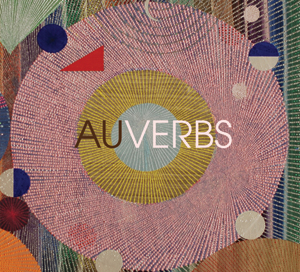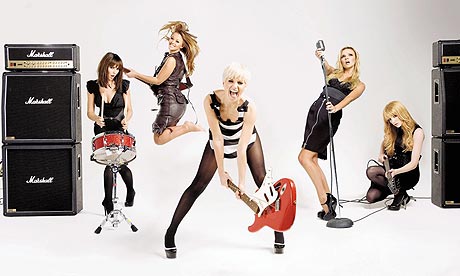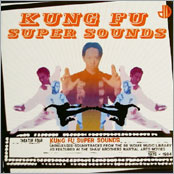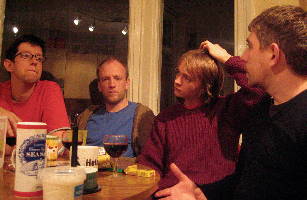Au – Verbs (Aagoo)
As far as opening statements go, the first track of Verbs, All My Friends, is one that could have so easily been more effective. It’s not ineffective in its deployment, but a larger dynamic contrast would have elevated it to a near elemental level. The whooshing strums and freeform chorusing work well and create the opening atmosphere of calm activity so coveted by bands desperate to make that all-important and not-too-psychedelic lunge that says “hey… we’re sensitive musicians”, but it remains mostly at the one dynamic level. It’s suddenness is as comparable to the final note in The Beatles A Day In The Life as it is to Terry Riley’s minimalist immediacy, but a climb towards oblivion would have helped it so much. As it winds down and links (beautifully, without a doubt) into Are Animals, it’s impossible not to think that this would be even more excellent had we been through more storms in the opening minutes.
Are Animals, though, is the album’s undisputed shining moment. Whimsical in the vein of the Soft Machine, structured methodically and precisely like classic minimalism but, crucially, recorded like a Pixies record. This moderately stylised soundworld means that the shouting hordes in the background sound like they’re wandering through the next room, and the clicking rim-shots keep it all ticking along keenly. Best of all, though, is that Au have remembered to but in nagging descending harmonies, agonizingly sweet/rough and the key to the song’s success after the opening.
Elsewhere, things develop a little more slowly. There are valiant soundscape attempts, with the close of Summerheat sounding like The Low Lows at their most placid, but for the most part these err on the side of underdevelopment. When the songwriting style becomes direct, it’s a tremendous relief that we’re back at the delirious level of what is so often termed as ‘wonky’ pop. This is not to say that pieces with more scope are unwelcome in general within this context, but that within Verbs, the contrasts between them and the more direct sections could be harsher – crucially enlivening the impact.
It’s quite an uneasy mix to behold. What is, essentially, Americana and alt.indie expanded into wider academic and musical frameworks, suffers not because the falsities of its ambition, but because of the minimal methods used to attempt these expansions. When Verbs kicks and judders, it is faultless entertainment. When it sits and contemplates, it is less engaging. The pace sags, and the listener yearns for more. The gentle crafting of more elaborate contemplative sections could well result in a magnificent, dynamic album from Au in coming years, but Verbs is not quite it.
Verbs is released on November 3rd (this Monday!). Visit the band’s MySpace.








